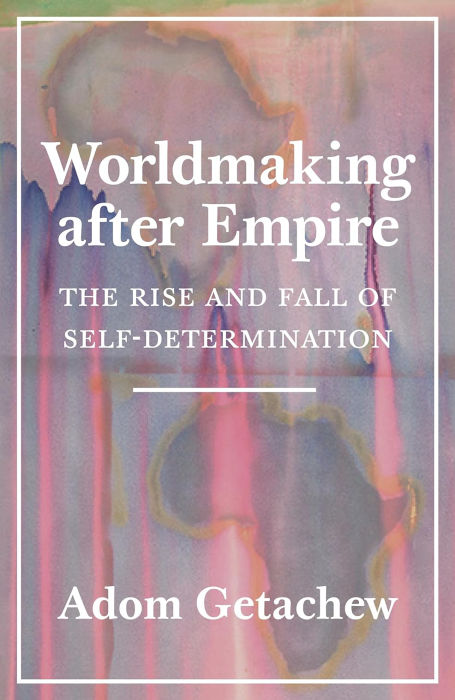Books
Adom Getachew
Worldmaking after Empire
The Rise and Fall of Self-Determination
Adom Getachew’s Worldmaking after Empire: The Rise and Fall of Self-Determination offers a transformative account of decolonization, revealing how anticolonial leaders and thinkers sought not only national independence but a radical reordering of the global system itself. Through the voices and visions of figures like W.E.B. Du Bois, Kwame Nkrumah, Julius Nyerere, and Michael Manley, Getachew uncovers the ambitious and often overlooked project of creating a more egalitarian world order in the wake of empire.
Adom Getachew’s central argument in Worldmaking after Empire is that twentieth-century anticolonialism went far beyond the pursuit of nation-state sovereignty. Black Atlantic intellectuals and postcolonial leaders envisioned “worldmaking”—a transformative project aimed at dismantling imperial hierarchies and creating international structures rooted in equality and nondomination. Through this lens, Getachew traces how these figures reconceptualized self-determination, moving beyond the traditional Westphalian model to champion global reforms that addressed the racial and economic inequalities embedded in the legacy of colonialism. Key themes include the institutionalization of imperial concerns in the League of Nations, the reinvention of self-determination through the United Nations (notably with UN Resolution 1514), the rise and fall of regional federations as alternatives to the nation-state, and the ambitious push for economic justice through the New International Economic Order (NIEO) of the 1970s.
Getachew contends that despite the bold ambitions of these worldmaking efforts, they ultimately faltered as the promise of self-determination was constrained by the resurgence of great power politics and the structural limits of the international system. Nevertheless, she insists that the legacy of anticolonial worldmaking remains crucial for understanding and challenging the persistent inequalities of the contemporary global order, offering a vital corrective to narrow, nation-centered narratives of decolonization.
Worldmaking after Empire is widely praised for its elegant writing, original analysis, and its call to rethink the history of decolonization beyond the creation of new nation-states. By foregrounding the global ambitions of anticolonial leaders, Getachew provides a vital corrective to Eurocentric narratives and invites renewed attention to the unfinished project of building a just international system. This book is essential reading for anyone interested in international relations, postcolonial theory, and the ongoing struggle for global equality.

